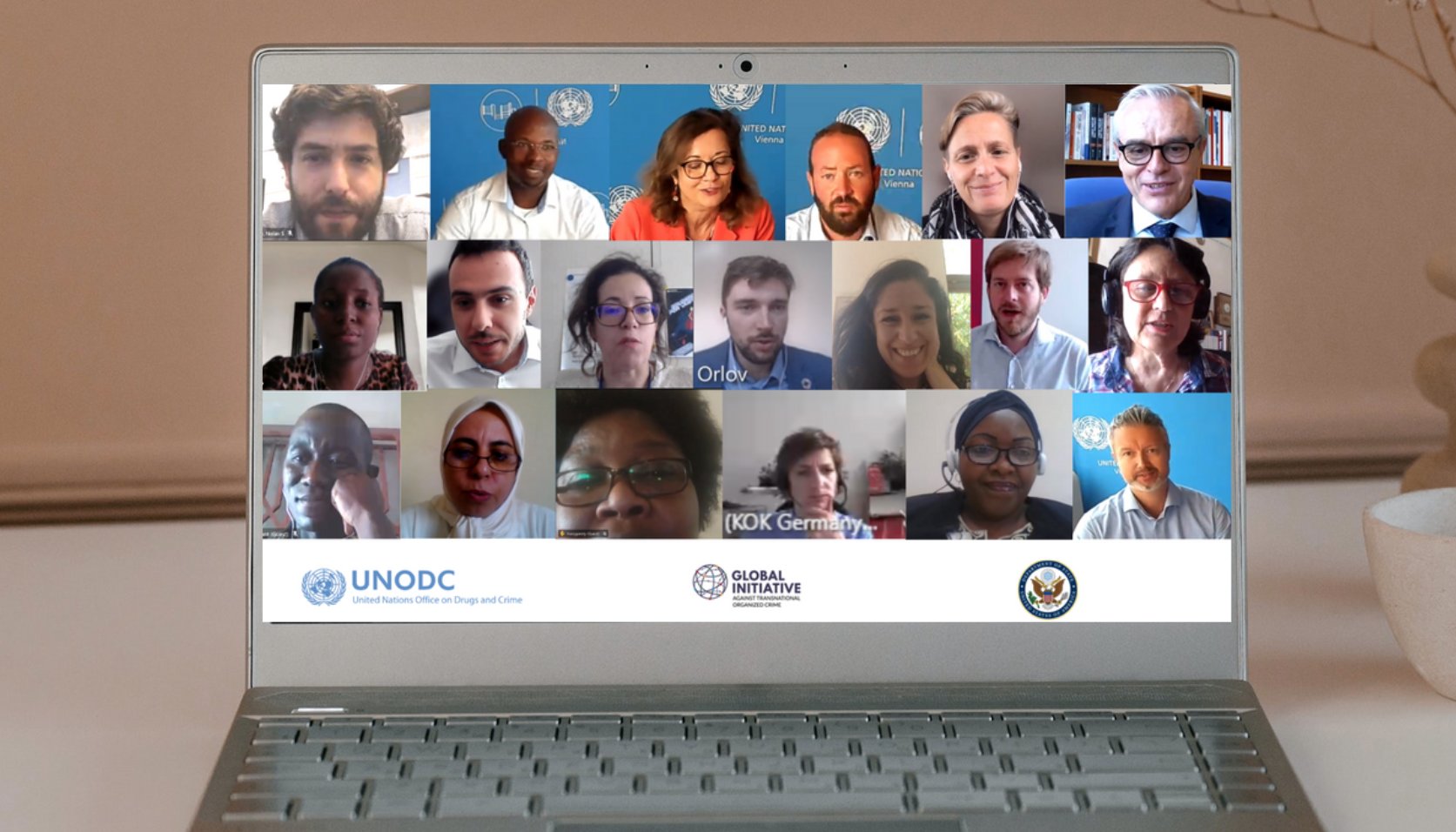UNODC Delivers the first Workshop for Civil Society on the Self-assessment Questionnaire of the UNTOC Review Process
Vienna (Austria), 8 July 2021 – The review process for the United Nations Convention against Transnational Organized Crime (UNTOC) was officially launched in October 2020 through the adoption of Resolution 10/1. Since then, Member States are appointing focal points to carry out the review through the self-assessment questionnaire which is the main instrument for the review. Resolution 9/1 of the Conference of the Parties to UNTOC explicitly calls on States Parties to “prepare … responses to the self-assessment questionnaire through broad consultations at the national level with all relevant stakeholders including, where appropriate, the private sector, individuals and groups outside the public sector, non-governmental organizations and academia […].”
To prepare non-governmental stakeholders to contribute meaningfully to the review process, UNODC Civil Society Unit (CSU) together with the Global Initiative against Transnational Organized Crime (GI-TOC) organized from 7 to 8 July a two-day virtual workshop for civil society, academics and the private sector to introduce the self-assessment questionnaire, and to present useful tools for engagement and coordination. The workshop was made possible by the support of the Government of the United States’ Bureau of International Narcotics and Law Enforcement Affairs.
The workshop aimed to familiarize participants with the Review Mechanism (as per COP-UNTOC Resolutions 9/1 and 10/1 (the self-assessment questionnaire).
The event was moderated by Mirella Dummar Frahi, Chief of the UNODC CSU, who emphasized that the unit works to ensure that the Convention is implemented inclusively, involving all relevant stakeholders and partners.
In his opening remarks, Jean-Luc Lemahieu, Director of the Division for Policy Analysis and Public Affairs stressed the importance of the support of and collaboration with civil society on the ground.
Nolan Klein, Deputy Counsellor at the U.S. Mission to International Organizations in Vienna, noted that without the contribution of civil society organizations (CSO) the work of Member States in countering transnational organized crime will be severely handicapped.
Antonio de Vivo from UNODC described the technical aspects of the Review Mechanism and the avenues for civil society engagement. He presented the self-assessment questionnaire and engaged with participants during the Q&A session. “Despite the fact that few member states have nominated focal points (as of today), we can sense the enthusiasm of CSOs to understand and actively engage with the process” - he concluded.
During the second day, useful tools including the Education for Justice initiative (E4J), UNODC SHERLOC knowledge management portal, the WhatsOn platform for non-governmental stakeholders working on countering organized crime and corruption, as well as avenues for engagement and coordination of inputs in the review process from GI-TOC were demonstrated. Lessons learned from the review process of the UN Convention against Corruption and coordination opportunities were also presented by UNCAC Coalition. The Alliance of NGO on Crime Prevention and Criminal Justice invited participants to join the network which coordinates the work of UNODC with NGOs working on crime prevention.
Moving forward some key takeaways for Civil Society to engage in the review process including lessons learned from the UNCAC review process such as:
- Engage with the government early, collect information, discuss what will be the follow-up, and how to be involved.
- Build coalitions and engage with all relevant stakeholders.
10 Jul, 2021
